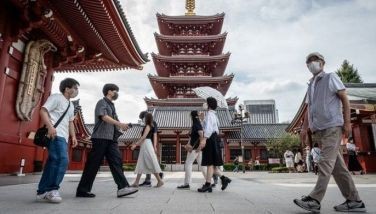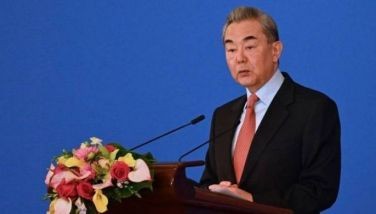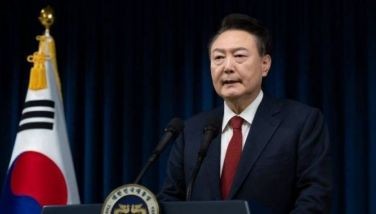Myanmar's monk stands by offensive language against United Nations envoy
YANGON, Myanmar — Following a stinging rebuke by the United Nations' human rights chief, Myanmar's ultranationalist Buddhist monk fired back Thursday, saying he didn't regret calling a U.N. special envoy a "whore" and a "bitch" after she criticized a bill opposed to interfaith marriage and religious conversions.
U.N. Special Rapporteur Yanghee Lee visited Rakhine state last week, where hundreds of people, most of them minority Muslims, have been killed and hundreds of thousands displaced since 2012 in violence which the monk Wirathu has been accused of inciting.
She had criticized several pieces of legislation proposed by a coalition of nationalist Buddhist monks, including a bill that would place curbs on interfaith marriage and conversions, saying they were discriminatory toward women and minorities and could inflame tensions.
"We have explained about the race protection law, but the bitch (Lee) criticized the laws without studying them properly," Wirathu shouted from a stage at a protest rally last Friday to the loud applause from the crowd. "Don't assume that you are a respectable person because of your position. For us, you are a whore."
U.N. High Commissioner for Human Rights Zeid Ra'ad Al Hussein urged Myanmar's religious and political leaders to condemn the "insulting, sexist" language used by Wirathu.
"It's intolerable for U.N. Special Rapporteurs to be treated in this way," he said.
On Thursday, Wirathu told The Associated Press when contacted by telephone that it was time for the international community to butt out of his country's internal affairs.
"It was nothing compared to the insult Ms. Yanghee Lee gave to our country," Wirathu said.
Newfound freedoms of expression that accompanied predominantly Buddhist Myanmar's transition from a half-century of military rule in 2011 lifted the lid on deep-seated prejudice against members of the country's Rohingya Muslim minority, and those seen as defending them.
Most of Myanmar's 1.3 million Rohingya live under apartheid-like conditions in Rakhine state. Denied citizenship by national law, they have limited access to adequate health care and education, and face restrictions on movement. More than 100,000 have fled the country in the last two years.
- Latest
- Trending
































